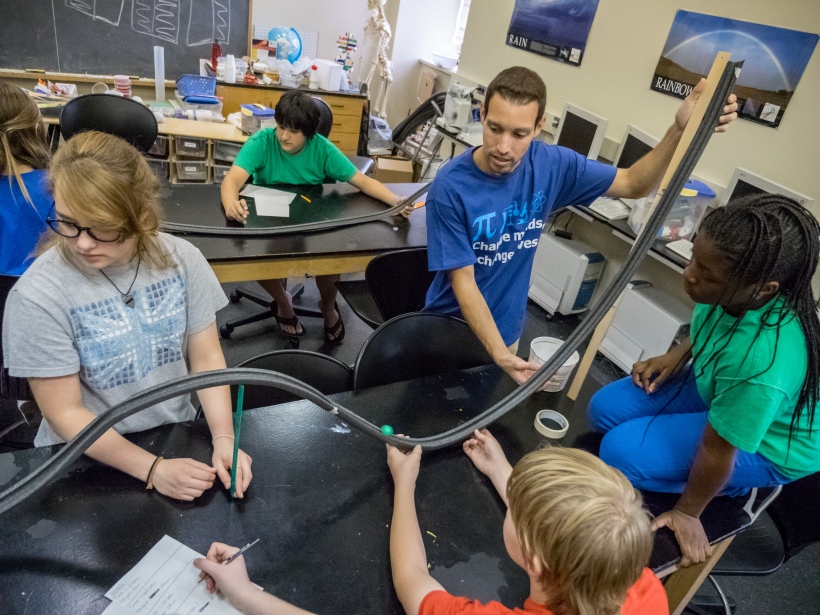News
Fellow Q&A: WW Teaching Fellow Eric Clementelli
WW Teaching Fellows come from many different backgrounds but are united by a single goal: to teach science, technology, engineering, and math (the STEM fields) to some of the nation’s highest-need students. But what makes these Fellows tick? What inspired them to pursue a career in the classroom? In this WW Perspectives series, we hear from WW Teaching Fellows about what drew them to the program.
Eric Clementelli is a 2014 WW New Jersey Teaching Fellow and a veteran of the U.S. Marine Corps and is now teaching science in grades 5–7 at Heywood Avenue School in Orange, N.J. Here is what Eric had to say about his experiences.
WWP: What drew you to consider teaching as a career change?
Eric Clementelli: My decision to pursue teaching as a career started during my enlistment in the United States Marine Corps. As I gained responsibility and progressed through the ranks, I was holding more and more meetings. I found myself planning copious notes for talking points and practicing tactful approaches in relaying the information. When I got out of the Marines, I visited the classrooms of friends and family who supported me throughout my deployment to Iraq to share my experience and express my gratitude. Coming home really helped me to realize that people were interested with what I had to say and how I said it, so I went to school to become better rounded in my knowledge. At school I felt confident in my knowledge so I took a job tutoring student athletes. This was a challenge since their priority was not school, so I had to work extra hard getting them to feel motivated about science. One-on-one tutoring turned into small groups, and then I became the teacher’s assistant for a class during my senior year. It was nice being able to teach science at that level, but the instruction method was boring. I realized it would be much better doing demonstrations and leading classroom labs like I currently do as a practicing teacher.
WWP: Was there any reason you chose your specific university?
EC: Montclair was a very clear decision when it came time to pick a university. Many of my friends went to school to become teachers. Many of them did not become teachers. Those who did become teachers went to Montclair. I was always told how specialized Montclair State University was in the education industry and was excited to find out.
WWP: What’s the most rewarding part of the program so far for you?
EC: There are so many rewarding parts to the program! My cohort [of Woodrow Wilson Teaching Fellows] is wonderful. Everyone is so supportive and we help each other reach our goals in the classroom. The staff is great and there is not one problem or incident we had in our classrooms that they haven’t experienced themselves. My collaborating teacher gave me the opportunity to start lead teaching early and is very open to all my ideas. The most rewarding part has been when I talk to the students during class labs. All of a sudden one student gets that ‘ah hah’ moment, and then immediately turns to their group partners to finish making the correct procedures and complete the experiment first.
WWP: What would you say to someone who’s considering becoming a Woodrow Wilson Teaching Fellow?
EC: With the hardships of students living in high-need areas, the amount of recent civil unrest, and the opportunity for major shifts in social justice, now is the time to become a teacher!
I would say that the Woodrow Wilson Teaching Fellowship stays true to the message on our t-shirts, “Change Minds, Change Lives.” Take the opportunity to not only present new and exciting material to students, but to change how they see the world. When I first started understanding science I looked at everything differently. Some things made more sense and somethings grew in complexity.
The school plays a key role in the community, and the Woodrow Wilson Fellowship is helping to bridge the gap. Your teaching might not end up on the news, but you will know the difference that you have made. Learning about your students and developing coursework specific to them had been what has helped me to learn most about myself.
Interviews have been edited for length and clarity.


